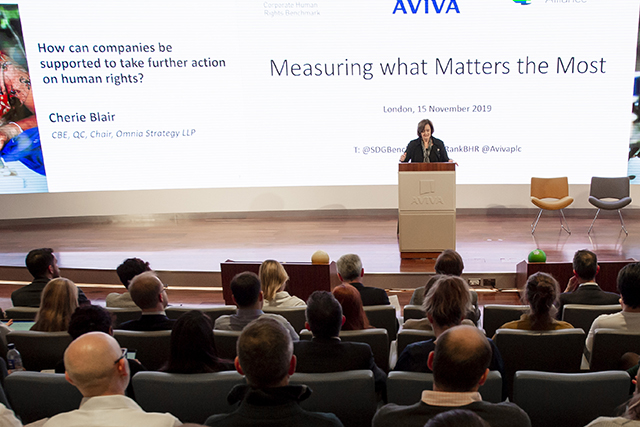The 2019 Corporate Human Rights Benchmark assesses 200 of the largest publicly traded companies in the world on a set of human rights indicators. The companies, from four industries - Agricultural Products, Apparel, Extractives and ICT Manufacturing - were selected on the basis of their size (market capitalisation) and on geographical balance. CHRB measures how companies perform across 100 indicators based on the UN Guiding Principles on Business and Human Rights (UNGPs). It uses publicly available information on issues such as forced labour, protecting human rights activists and the living wage to give companies a maximum possible score of up to 100% (2).
Headline results show most businesses are failing to meet corporate human rights expectations:
- Over half of major companies in apparel, extractive, food & beverage and tech manufacture are failing on human rights - particularly on due diligence;
- Steady improvements have been seen over three years, but one in five companies failed to improve on low scores;
- The tech manufacturing sector, added for first time, scores poorly – demonstrating that urgent action is needed;
- Monster Beverages, Starbucks and Costco are still amongst the poorest performers in the ranking, while Adidas, Rio Tinto, Unilever, M&S and Hewlett Packard are leading their sectors.
While some leading companies have improved significantly, more than half of those assessed are failing to demonstrate they are meeting any of the UNGP’s basic requirements on human rights due diligence. As this is the tool for companies to both “know and show” that they are respecting human rights, this year’s benchmark shows that more urgently needs to be done by companies, investors and governments.
75% of companies have improved their scores, with top movers since 2017 including ENI, Diageo, Repsol, Danone, Heineken, Fast Retailing, Kellogg, Inditex and Pepsico. Leaders, such as Adidas, Unilever and Marks & Spencer retain top positions and score above 70%. But most companies are performing poorly - the average overall score is 24%, while companies added to the ranking this year scored 17% on average. Tech companies averaged just 18% in the 2019 ranking, although this is the first year they are featured.
For more on the 2019 results and methodology, visit the Corporate Human Rights Benchmark website.





























The perception of ‘value’ needs to change if the World Bank’s mission is to succeed
Last week we attended the Spring Meetings of the World Bank and International Monetary Fund (IMF) in Washington, D.C. The annual IMF-World Bank meetings bring together finance ministers and central bankers from all regions as a platform for official...
26 April 2024 | Commentary
Commentary by Vasuki Shastry, Author, ESG/Strategic Communications Expert; International Advisory Council, IHRB Haley St. Dennis, Head of Just Transitions, IHRB